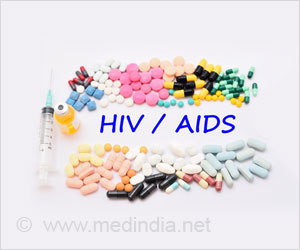Merck’s Raltegravir shows considerable promise in Australian trials.
Merck’s Raltegravir HIV drug shows considerable promise in Australian trials.
It is shown to effectively lower the amount of virus in the blood to undetectable levels in 62 percent of people taking it in combination with other anti-HIV medicines.Only one in three people who received a placebo plus other anti-HIV medicines had the amount of virus in the blood reduced to similar levels.
Research co-authored by the University of New South Wales' (UNSW) National Centre in HIV Epidemiology and Clinical Research (NCHECR) shows that the majority of patients who have not responded to traditional treatments have had good results from the new combination therapy.
The drug raltegravir is already available in Australia and is listed on the Pharmaceutical Benefits Scheme. Clinical trials show that it is safe, effective and with minimal side-effects when used with other anti-HIV medicines.
"This is the first drug in a new class of antiretroviral drugs called integrase inhibitors," said UNSW Professor David Cooper AO, the Director of NCHECR.
"The drug has a different mechanism of action, is very potent, seems very safe and has helped patients who have a virus that is resistant to older drugs and classes," said Professor Cooper.
Advertisement
Raltegravir works by blocking an HIV enzyme called integrase. Integrase is one of the three enzymes necessary for HIV to replicate in the body, and integrase inhibitors stop HIV from inserting its genes into uninfected DNA. The other two enzymes necessary for viral replication, reverse transcriptase and protease, already are targeted by a variety of antiretrovirals.
Advertisement
The results were based on analyses of viral load reductions and CD4 cell count increases. A high CD4 cell count is crucial for a healthy immune system.
Professor Cooper said the efficacy shown at 48 weeks of treatment was consistent with observations at 24 weeks, indicating that the drug in combination has a durable effect.
The study shows the drug is well-tolerated by patients. It showed that only 0.9 percent of those receiving raltegravir discontinued therapy due to side-effects including nausea and headaches.
The overall results have been drawn from two major ongoing clinical trials in Europe, Asia, Australia and North and South America. Both studies are supported by Merck & Co, Inc., the manufacturer of raltegravir.
Professor Cooper is the first author of the second of two papers published in this edition of the New England Journal of Medicine. The first is led by Professor Roy Steigbigel from Stony Brook University Medical Center.
Source-Medindia
GPL/S













